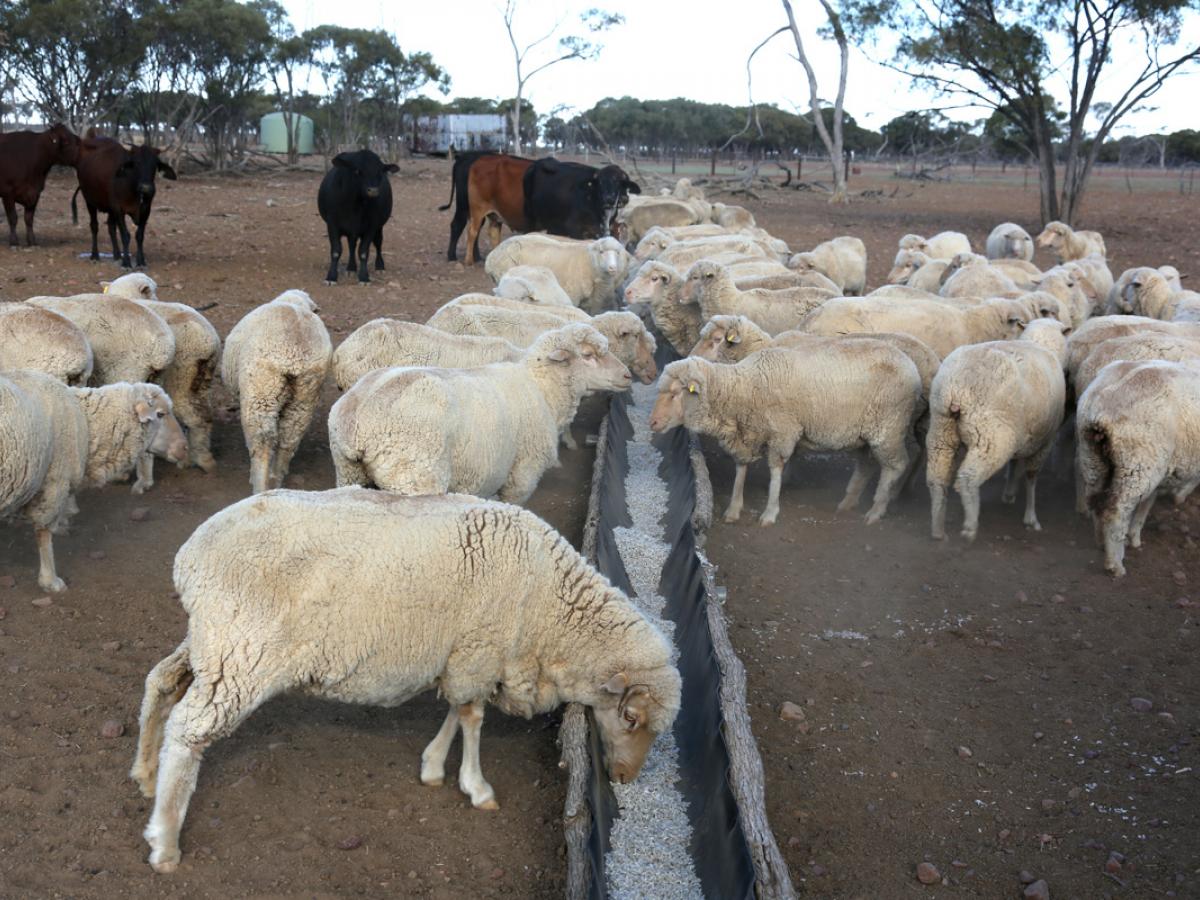Researchers to investigate prevalence of PFAS in livestock
A new national study by the University of Adelaide will seek to understand the prevalence of per- and polyfluoroalkyl substances (PFAS) in Australian livestock, with researchers seeking farmers who have previously applied biosolids as fertiliser to be collaborators in the project.

Photo credit: James Bowyer
PFAS have previously been observed in Australian livestock, with higher rates found in areas where PFAS concentrations in the environment are elevated.
This research project will focus on the correlation between PFAS in livestock that grazes on land which has received sewage biosolids or wastewater in the past 10 years.
“In livestock, PFAS primarily trace back to their presence in the environment, notably in drinking water, plant and feed,” says Dr Shervin Kabiri, of the University of Adelaide’s School of Agriculture, Food and Wine.
“One potential way it can accumulate in the environment is from biosolids and wastewater effluent. These organic waste streams are utilised as fertiliser, recycling nutrients back into agricultural land and reducing the demand for synthetic fertilisers.
“However, the potential for PFAS contamination necessitates a better understanding of the risks involved.”
Elevated concentrations of PFAS in livestock could have implications for both animal and human health.
“The bioaccumulative nature of these substances means they can persist and concentrate within an animal's body, potentially entering the human food chain through consumption of animal products. This study aims to shed light on this critical issue.” says Dr Matthias Salomon, another researcher on the project.
Dr Kabiri and her research team are recruiting farmers from South Australia, New South Wales, Victoria and Queensland who have used sewage biosolids or effluent as fertiliser in the past 10 years on fields now used to raise sheep or cattle livestock.
Participating farmers will be asked to provide access to their properties so researchers can collect 30 ml blood samples from 20 sheep or cattle, as well as collect water and soil samples.
“We will make sure to keep a high level of privacy and data confidentiality. No individual PFAS results will be shared with anyone besides the participating farmer. However, participating farmers will receive their personal test results with a complementary consultation on what these results mean,” says Dr Kabiri.
As our understanding of the health implications of exposure to PFAS evolves, it is important to better understand its prevalence in the environment.
“The correlation of PFAS and the application of biosolids in agriculture is a complex field involving environmental samples, livestock sampling, and extensive farmer engagement, which has meant investigations into the issue have been limited,” Dr Kabiri says.
“We hope that through this study, which is funded by the Australian Department of Agriculture, Fisheries and Forestry and includes collaborators from the University of Queensland, we can bridge this gap in our knowledge and help to improve animal and human health in Australia.”
Farmers interested in participating in the PFAS in livestock study can register their interest by contacting Dr Salomon via matthias.salomon@adelaide.edu.au. The expression of interest period closes at the end of May 2024.
For more information on the study, see this fact sheet.
Media contacts:
Dr Shervin Kabiri, Mortlock Fellow, School of Agriculture, Food and Wine, University of Adelaide. Phone: +61 08 8313 9306 Email: shervin.kabiri@adelaide.edu.au
Dr Matthias Salomon, Post-doctoral researcher, School of Agriculture, Food and Wine, University of Adelaide. Email: matthias.salomon@adelaide.edu.au
Johnny von Einem, Media Coordinator, The University of Adelaide. Mobile: +61 0481 688 436, Email: johnny.voneinem@adelaide.edu.au
